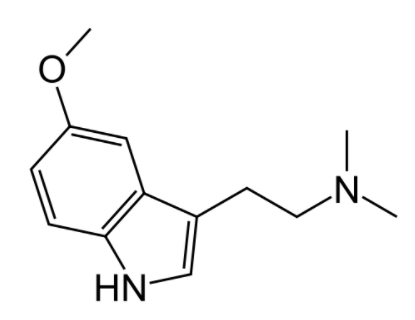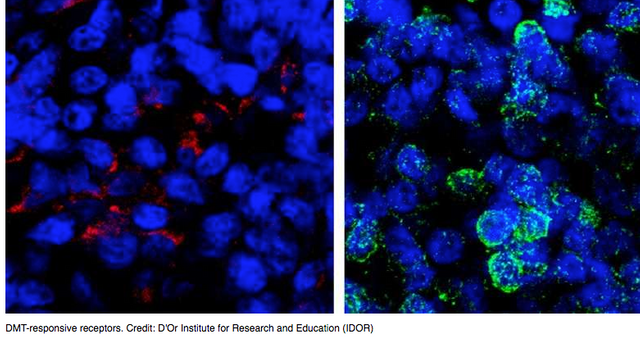Psychedelics: Applying cultured 3D neural organoids in studying the effects of DMT on signalling pathways
A study recently published by the D'Or Institute for Research and Education in Brazil has shown to identify a variety of signalling pathways that may be altered by a compound known as 5-MeO-DMT a member of the dimethyltryptamine (DMT) family. The pathways that were found to be altered by 5-MeO-DMT are involved with neurodegenerative processes, inflammation and neural plasticity meaning there is large potential for further preclinical research into the way in which 5-MeO-DMT alters cerebral functioning in both healthy and disease state models. In recent times studies have been completed using a variety of psychedelic compounds such as MDMA and LSD in relation to PTSD and antidepressant therapies, however a lack of quantitative molecular analysis to analyse the targeted pathways has proved difficult to overcome.

In this recent study completed to measure the effects of 5-MeO-DMT on cerebral organoids, administration of single doses of 5-MeO-DMT to 3D neural cell cultures thought to be representative of the developing human brain were completed. By using quantitative techniques such as mass spectrometry-based proteomics there were 1000's of proteins found to have differing expression levels in response to 5-MeO-DMT administration. The proteins found to have different expression levels were then mapped out in order determine the impact of the alteration of expression by 5-MeO-DMT administration and the roles that they may play in human brain function. Of these proteins identified many played roles in synaptic formation and maintenance and were found to have higher expression levels, some having key relationships to learning and memory both major roles in brain function.
There were also many proteins found to be implicated in inflammation, degeneration and brain lesions downregulated after 5-MeO-DMT administration pointing to a potential neuroprotective role of DMT. A comment made by a coauthor of the study, Sidarta Ribeiro said "Results suggest that classic psychedelics are powerful inducers of neuroplasticity, a tool of psychobiological transformation that we know very little about."
 With further studies being completed such as this one there is the potential for further research into the implications of psychedelic use and the potential to identify potential therapeutic targets that psychedelic compounds may be able to target in order to help improve or potentially cure some of any of the variety of debilitating disease states of the brain that can occur over a persons lifetime.
With further studies being completed such as this one there is the potential for further research into the implications of psychedelic use and the potential to identify potential therapeutic targets that psychedelic compounds may be able to target in order to help improve or potentially cure some of any of the variety of debilitating disease states of the brain that can occur over a persons lifetime.
Hey,
Are you also familiar with the works of Jordi Riba?
I am starting a blog series about psychedelics in case you are interested in these topics!
Congratulations @ligase! You received a personal award!
You can view your badges on your Steem Board and compare to others on the Steem Ranking
Do not miss the last post from @steemitboard:
Vote for @Steemitboard as a witness to get one more award and increased upvotes!